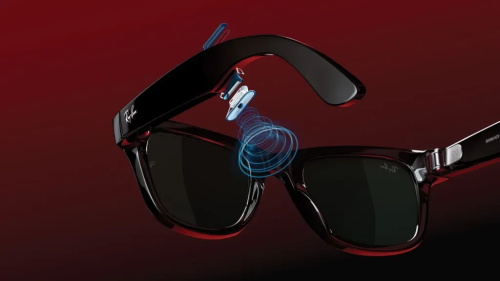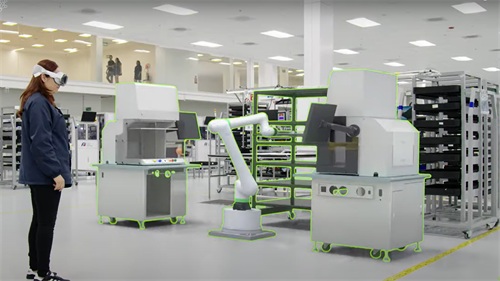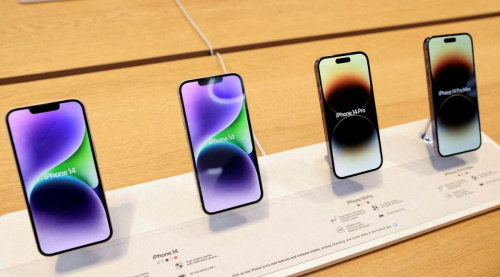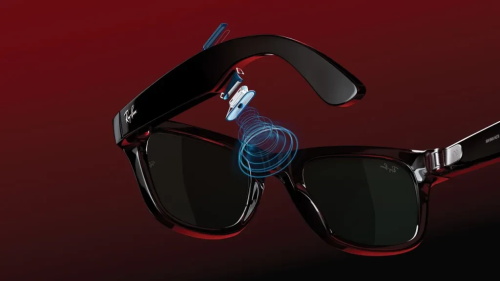Meta’s Hypernova Glasses: A Glimpse into the Future of Wearable Technology

In the rapidly evolving landscape of wearable technology, Meta's upcoming Hypernova smart glasses have ignited discussions about the potential obsolescence of smartphones. These advanced spectacles aim to seamlessly integrate digital experiences into our daily lives, but do they truly signal the end of smartphones or are they merely another tech novelty? The Hypernova glasses are designed to offer a suite of cutting-edge functionalities:
l Integrated Display: A discreet screen positioned in the lower-right corner of the right lens allows users to view notifications, photos, and app interfaces without reaching for their phones.
l Gesture-Based Controls: Paired with a neural wristband known as "Ceres," the glasses interpret subtle hand and finger movements, enabling intuitive interaction with digital content.
l Enhanced Camera: An upgraded camera system facilitates high-quality photo and video capture, positioning the glasses as a viable alternative to traditional smartphone photography.
l Artificial Intelligence Integration: Incorporating Meta's AI assistant, the glasses can understand and respond to voice commands, providing contextual information and assistance.
While not offering full-fledged augmented reality (AR), Hypernova represents a significant step toward blending digital information with the physical world. Users can access essential data hands-free, enhancing convenience and multitasking capabilities.
With an anticipated price range between $1,000 and $1,400, Hypernova is positioned as a premium device. This pricing reflects the advanced technology and materials used, distinguishing it from more affordable models like the Ray-Ban Meta glasses, which start at $299.
The integration of cameras, microphones, and AI capabilities in wearable devices like Hypernova raises significant privacy and ethical concerns:
l Unauthorized Data Collection: The ability to discreetly capture photos and videos may lead to unauthorized data collection, potentially infringing on individuals' privacy rights.
l Facial Recognition Capabilities: Demonstrations by researchers have shown that integrating facial recognition software with smart glasses can enable wearers to identify strangers and access their personal information, such as home addresses, raising concerns about potential misuse.
l Data Security: Storing and processing personal data, including images and voice recordings, necessitates robust security measures to prevent unauthorized access and misuse.
Meta has acknowledged these concerns and implemented features like an LED indicator to signal active recording. However, critics argue that such measures may not be sufficient to address all privacy implications.
Meta envisions a future where smart glasses could potentially replace smartphones by offering comparable functionalities in a more integrated form. However, several challenges must be addressed:
l Battery Life: Ensuring that the glasses can operate throughout the day without frequent recharging is crucial for user adoption.
l User Interface: Developing an intuitive and reliable control system that minimizes user frustration is essential.
l Privacy Concerns: The integration of cameras and microphones raises questions about user privacy and data security, necessitating transparent policies and robust safeguards.
Meta's Hypernova glasses embody a bold vision for the future of wearable technology, offering features that could redefine our interaction with digital content. While they present exciting possibilities, it remains to be seen whether they will render smartphones obsolete or serve as a complementary gadget in our tech arsenal. The success of Hypernova will depend on its ability to seamlessly integrate into users' lives, addressing practical concerns and delivering on its ambitious promises.
Recommend for you:

Foxconn's Robotics Bet: Can 'Embodied AI' Save Manufacturing?
Foxconn, a global leader in electronics manufacturing, is making significant strides by integrating 'embodied AI' robotics into its production processes.
Artificial General Intelligence by 2030? Experts Discuss Major Challenges
Ambitious predictions suggest AGI could be achieved by 2030, but experts highlight significant hurdles that may delay its realization.
iPhone's 8-Year Price Freeze: How Apple Defies Inflation (And Why It Can't Last)
While many products have seen price hikes due to inflation and increased production costs, Apple's flagship device has largely defied this trend. However, recent developments suggest that this era of price stability may be coming to an end.
Meta’s Hypernova Glasses: A Glimpse into the Future of Wearable Technology
These advanced spectacles aim to seamlessly integrate digital experiences into our daily lives, but do they truly signal the end of smartphones or are they merely another tech novelty?
